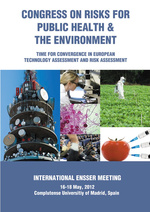Invitation
Webinar on hot button issues at CBD SBSTTA meetings in Nairobi: Synthetic biology, artifical intelligence, risk assessment of gene drives
Date: Wednesday 4th September 2024 at 15:00 CEST
Presenters: Ricarda Steinbrecher and Angelika Hilbeck – ENSSER Board members
Registration: https://us02web.zoom.us/webinar/register/WN_-lSMU7n-SEKB4LTvclr0Kw
In May this year, Parties to the Convention on Biological Diversity (CBD) met in Nairobi for their 26th meeting of the SBSTTA (Subsidiary Body on Scientific, Technical and Technological Advice) from 13-18 May and following that, the 4th SBI (Subsidiary Body on Implementation of the Convention) from 21-29 May. ENSSER board members Ricarda Steinbrecher and Angelika Hilbeck participated in both meetings and will report in this webinar about the most disputed issues of the SBSTTA negotiations.


